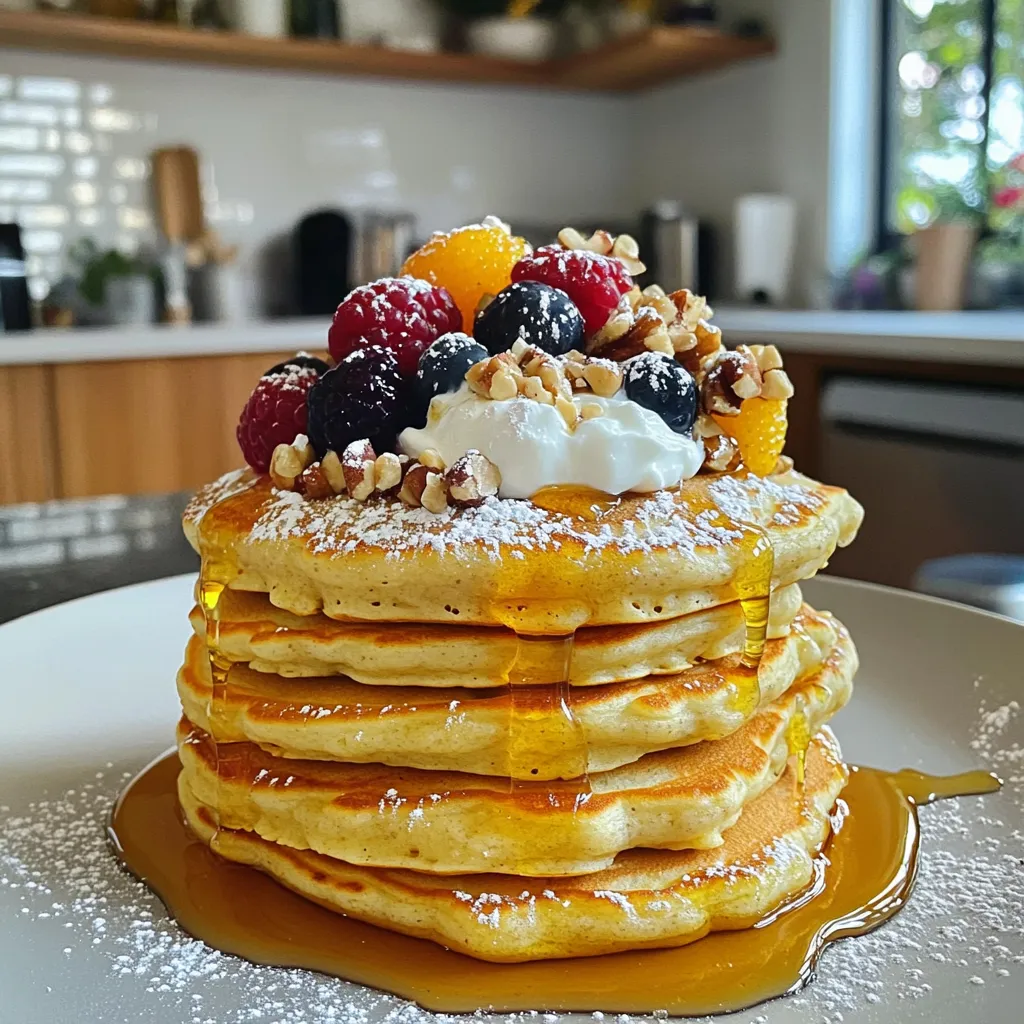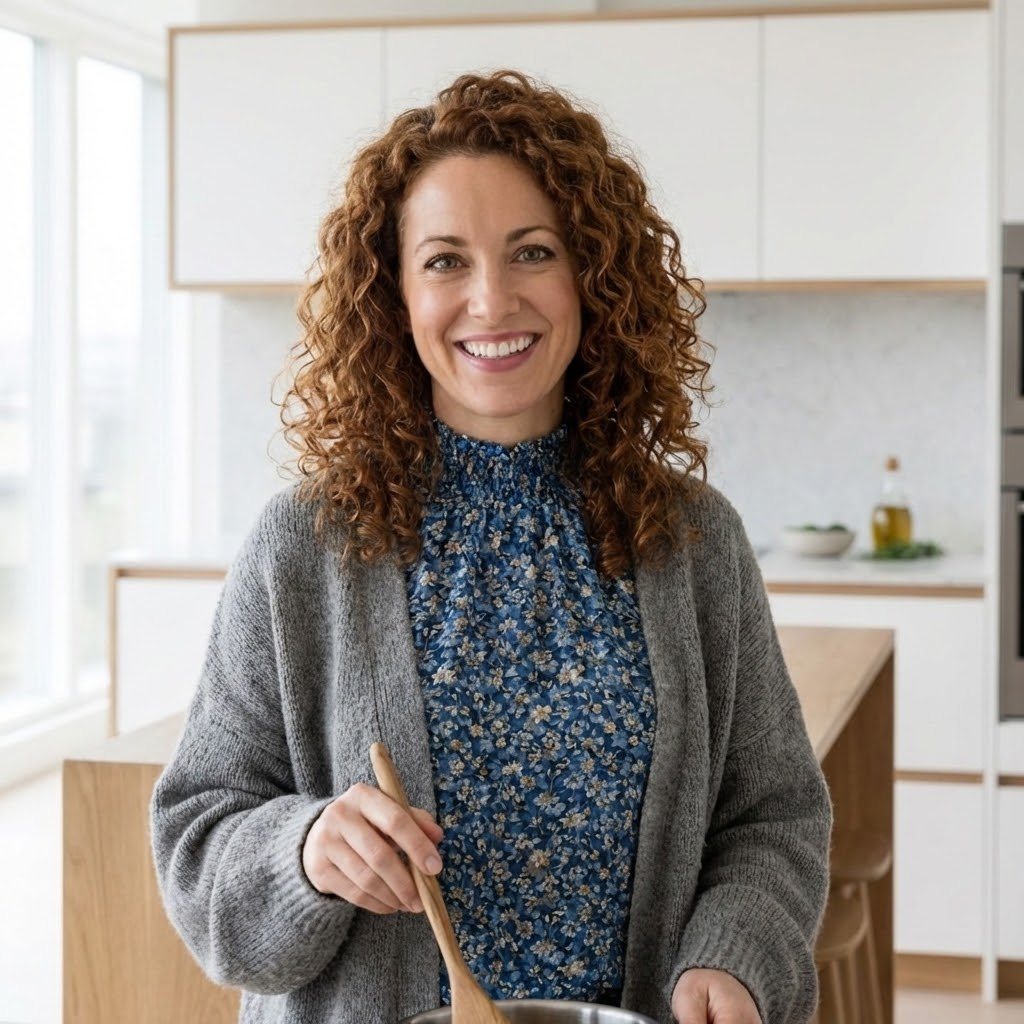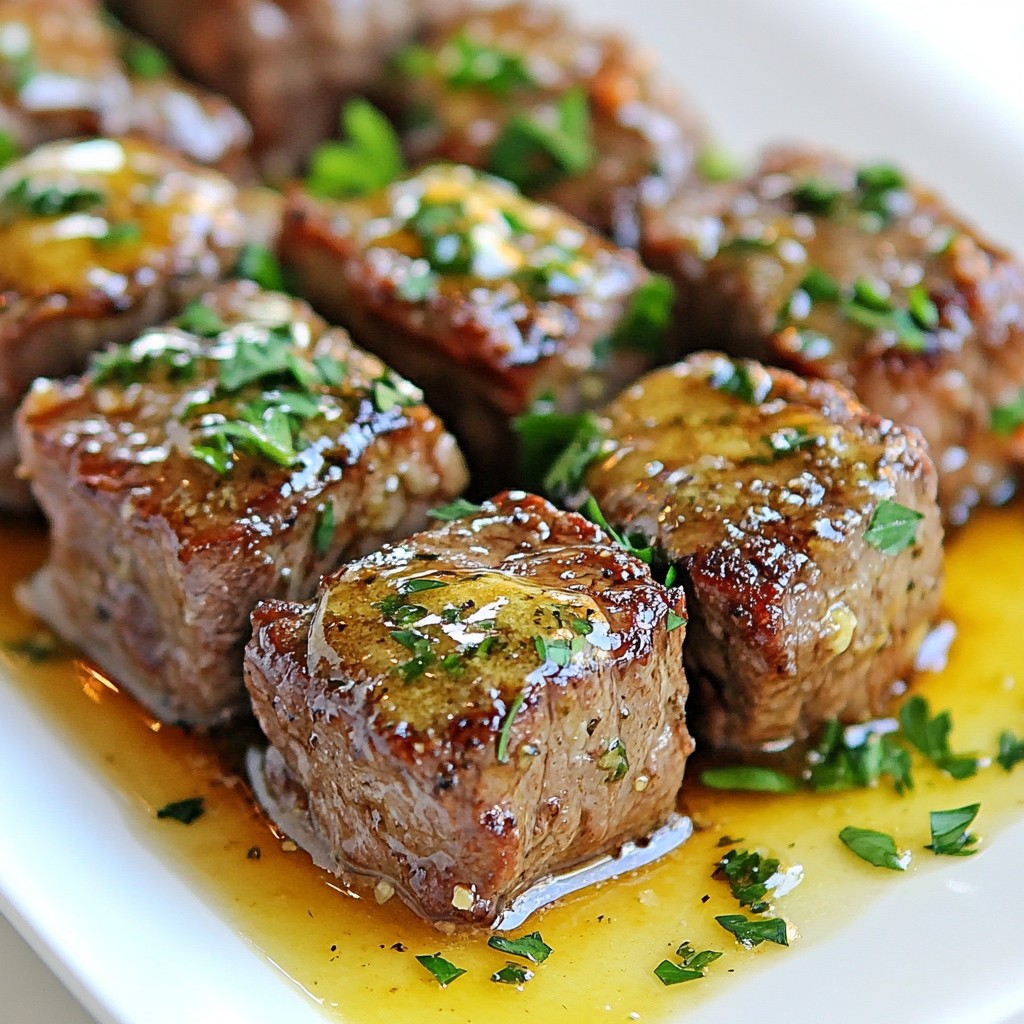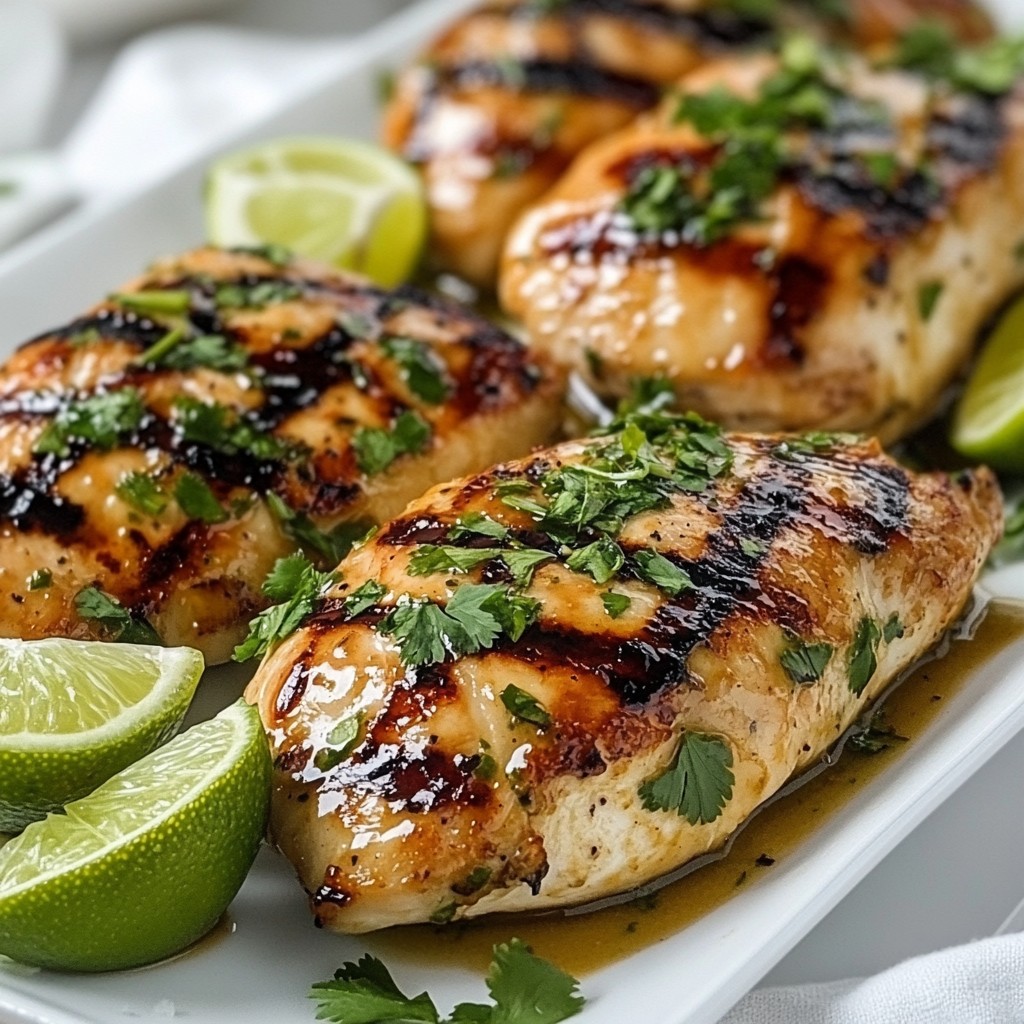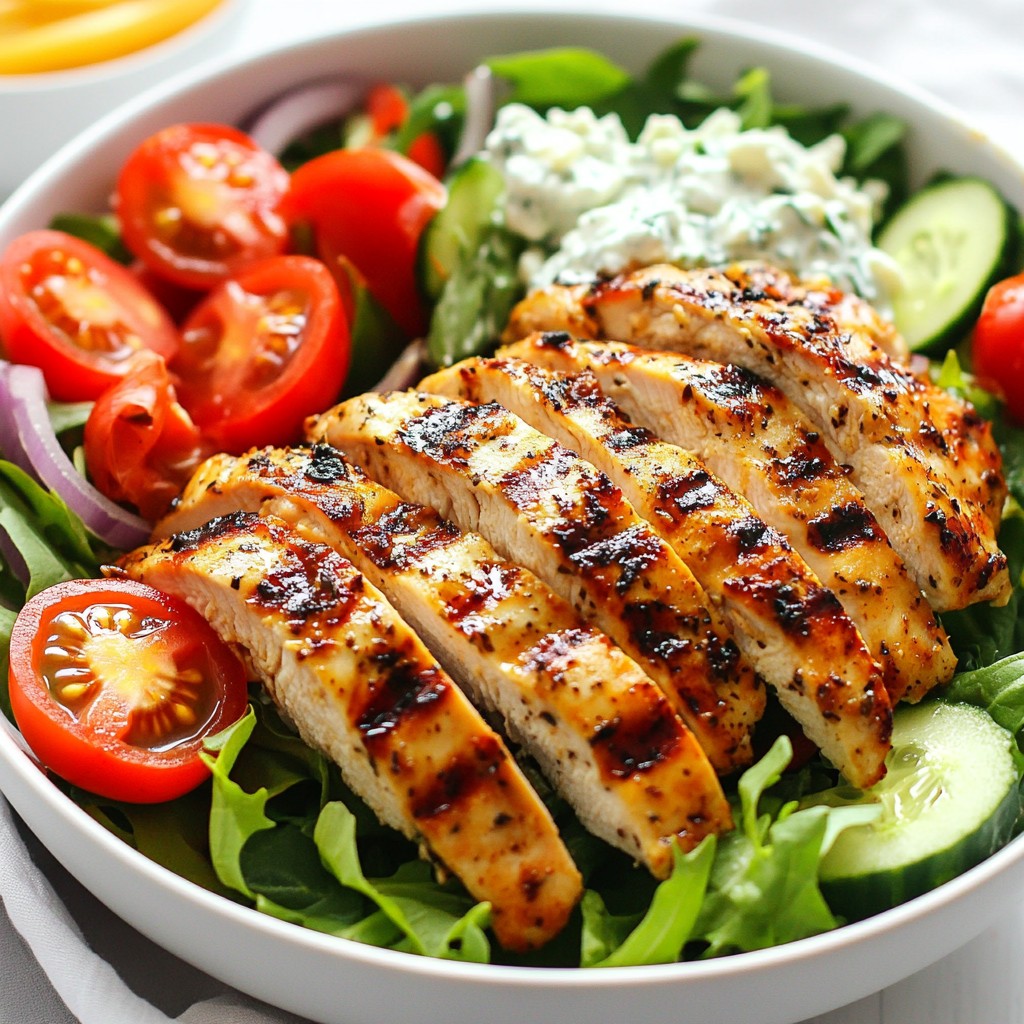Craving a nutritious breakfast that’s quick and easy? You’ll love these high-protein cottage cheese pancakes! Packed with protein and flavor, they’re a great way to start your day. In this simple recipe, I’ll guide you step-by-step through the process, from gathering your ingredients to serving. Whether you’re looking to boost your health or just enjoy a tasty meal, these pancakes are perfect for you. Let’s get cooking!
Ingredients
Main Ingredients
– 1 cup cottage cheese
– 1 cup rolled oats
– 2 large eggs
Cottage cheese is a key ingredient. It adds protein and creaminess. Rolled oats give the pancakes a nice texture and help bind the ingredients. Eggs help with structure and moisture.
Optional Ingredients
– 1 tablespoon honey or maple syrup
– 1 teaspoon vanilla extract
– Cooking spray or coconut oil
Honey or maple syrup adds sweetness. Vanilla extract gives a nice flavor boost. Cooking spray or coconut oil prevents sticking in the skillet.
Equipment Needed
– Blender or food processor
– Non-stick skillet or griddle
A blender or food processor makes mixing easy. A non-stick skillet or griddle helps cook the pancakes evenly.
Step-by-Step Instructions
Preparing the Batter
– Combining Ingredients
Start by placing the following ingredients in your blender:
– 1 cup cottage cheese
– 1 cup rolled oats
– 2 large eggs
– 1 tablespoon honey or maple syrup (if you want it sweet)
– 1 teaspoon baking powder
– 1/2 teaspoon vanilla extract
– A pinch of salt
Blending Process
Blend all these items until the mixture is smooth and creamy. If needed, stop to scrape the sides. This helps make sure everything mixes well.
Cooking the Pancakes
– Preheating the Skillet
Next, heat a non-stick skillet over medium heat. Lightly grease it with cooking spray or coconut oil. This will help prevent sticking.
– Pouring the Batter
For each pancake, pour about 1/4 cup of the batter onto the skillet. Give each one some space.
– Flipping Techniques
Cook for around 2-3 minutes. Look for bubbles on the surface and edges that seem set. When ready, flip the pancakes gently. Cook for another 2-3 minutes until they get golden brown.
Serving Suggestions
– Adding Toppings
Serve the pancakes warm. Drizzle with extra honey or maple syrup. You can also add Greek yogurt or fresh berries on top.
– Presentation Tips
Stack the pancakes high for a nice look. Garnish with fresh berries or a sprinkle of nuts. This adds color and texture. Serve with a side of Greek yogurt for more protein.
Tips & Tricks
Ensuring Perfect Pancakes
Achieving the Right Consistency
For perfect pancakes, you want a thick but pourable batter. If it’s too thick, add a splash of milk or water. If it’s too thin, mix in a bit more oats. Use a blender; it helps mix everything smoothly.
Troubleshooting Pancake Texture
If your pancakes are too dense, check your baking powder. Old baking powder can make your pancakes flat. Always use fresh baking powder. If they stick to the pan, make sure your skillet is well-greased.
Storage Tips
Storing Leftover Pancakes
Let the pancakes cool completely before storing. Place them in an airtight container. You can keep them in the fridge for up to three days. For longer storage, freeze them wrapped in plastic wrap.
Reheating Instructions
To reheat, simply use a microwave or a toaster oven. If using a microwave, heat for 20-30 seconds. In a toaster oven, heat at 350°F for about 5 minutes. This keeps them soft and fluffy.
Nutritional Benefits
Protein Content
These pancakes are packed with protein. Each serving contains about 15 grams of protein from the cottage cheese and eggs. This makes them a great choice for breakfast or a post-workout meal.
Health Benefits of Cottage Cheese
Cottage cheese is low in fat and high in calcium. It helps build muscle and bone strength. It also contains probiotics, which are good for gut health. Enjoying these pancakes supports both your health and taste buds.
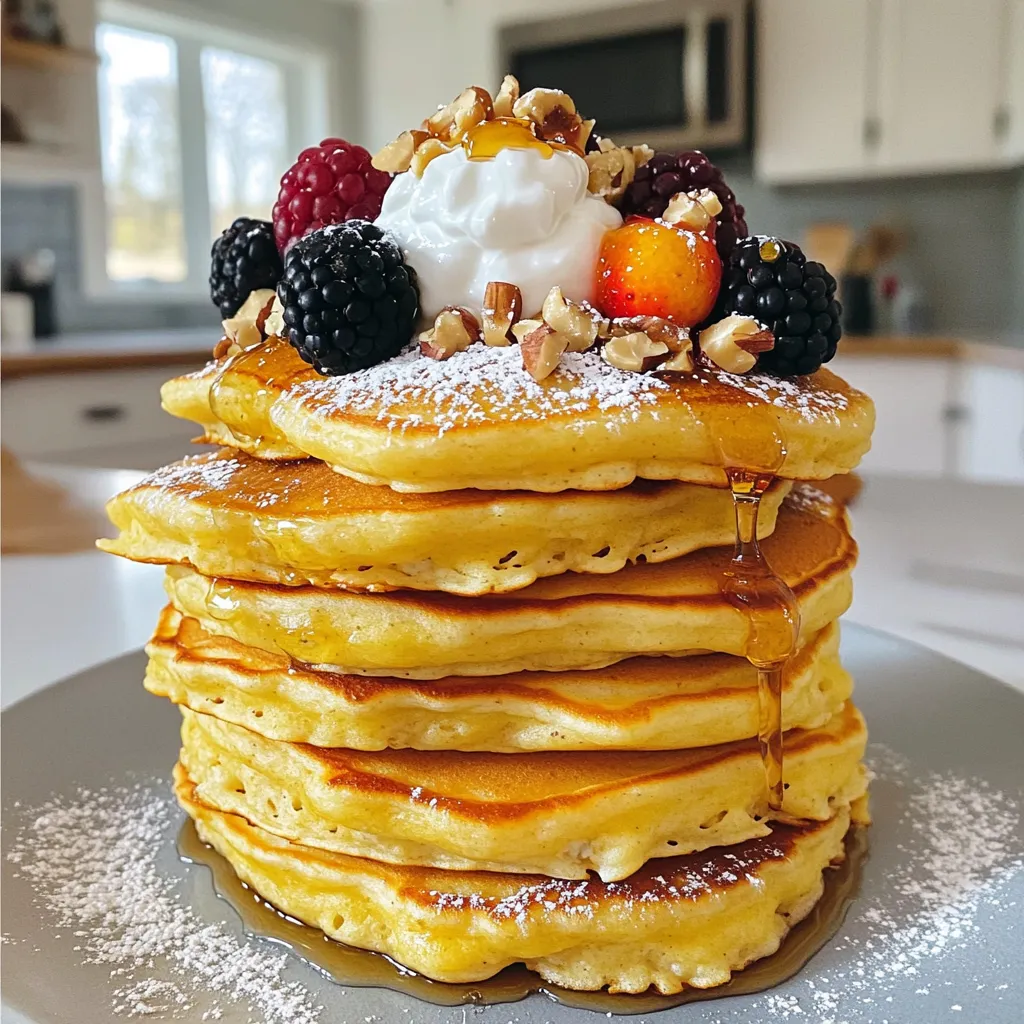
Variations
Flavor Variations
Adding fruits can make your pancakes fun and tasty. You can mix in blueberries, bananas, or strawberries directly into the batter. This gives your pancakes extra flavor and nutrition. You can also top them with fresh fruit for a colorful look.
Incorporating spices is another great way to change things up. A dash of cinnamon or nutmeg adds warmth and richness. You could even try a bit of lemon zest for a fresh twist. These spices can enhance the flavor without extra calories.
Dietary Modifications
If you need gluten-free options, you can use certified gluten-free rolled oats. This keeps the pancakes safe for those with gluten issues. You can also try almond flour or coconut flour for different textures.
For vegan substitutes, replace eggs with flaxseed meal or unsweetened applesauce. Use plant-based yogurt instead of cottage cheese for a creamy texture. These changes still keep your pancakes high in protein while being plant-based.
Serving Pairings
The best syrups for these pancakes include pure maple syrup or honey. Both add a natural sweetness that pairs well with the pancakes. You can also try yogurt or nut butter for a creamy topping.
Complementary sides can enhance your meal. Fresh fruit, like berries or sliced bananas, adds color and flavor. A side of Greek yogurt gives extra protein and makes your breakfast more filling.
Nutritional Information
Macronutrient Breakdown
The main ingredients in these pancakes offer a great balance. Each serving provides a good amount of protein, carbs, and healthy fats. Here’s the breakdown:
– Protein: About 14 grams
– Carbohydrates: Around 20 grams
– Fats: Approximately 5 grams
Cottage cheese is a fantastic source of protein. It helps build and repair muscles. Rolled oats add fiber and energy. Eggs boost the protein even more.
Calories Per Serving
Each serving has roughly 150 calories. This is a great option for breakfast or a snack. The low-calorie count, combined with high protein, makes these pancakes filling.
Health Insights
Eating a high-protein diet has many benefits. It helps with weight management. Protein keeps you full longer, so you may eat less. It also aids muscle growth and recovery. High-protein meals can boost metabolism, helping to burn more calories. Plus, they help balance blood sugar levels. Enjoy these pancakes as a tasty way to increase your protein intake!
FAQs
Can I use low-fat cottage cheese?
Yes, you can use low-fat cottage cheese. It will still give you great flavor and texture. Low-fat options can help cut calories while keeping protein high. Just keep in mind that the pancakes may be slightly less creamy.
How can I make these pancakes dairy-free?
To make these pancakes dairy-free, use a dairy-free cottage cheese substitute. There are many options made from nuts or soy. You can also use almond milk or oat milk instead of cottage cheese. Adjust the recipe with a little more flour if needed for consistency.
Can I freeze these pancakes?
Yes, you can freeze these pancakes! They freeze well and taste great when reheated.
– Tips for Freezing and Reheating
– Let pancakes cool completely before freezing.
– Place parchment paper between pancakes to prevent sticking.
– Store them in a freezer bag or airtight container.
– For reheating, microwave or toast them until warm.
In this blog post, we explored how to make tasty and healthy pancakes. We discussed main and optional ingredients, like cottage cheese and eggs. You learned the best tools for blending and cooking. I showed you step-by-step instructions for preparing the batter and cooking the pancakes. We also covered tips for great texture, storage, and fun variations. Remember, these pancakes are a great way to add protein to your meals. Enjoy experimenting with flavors to find your favorite!
